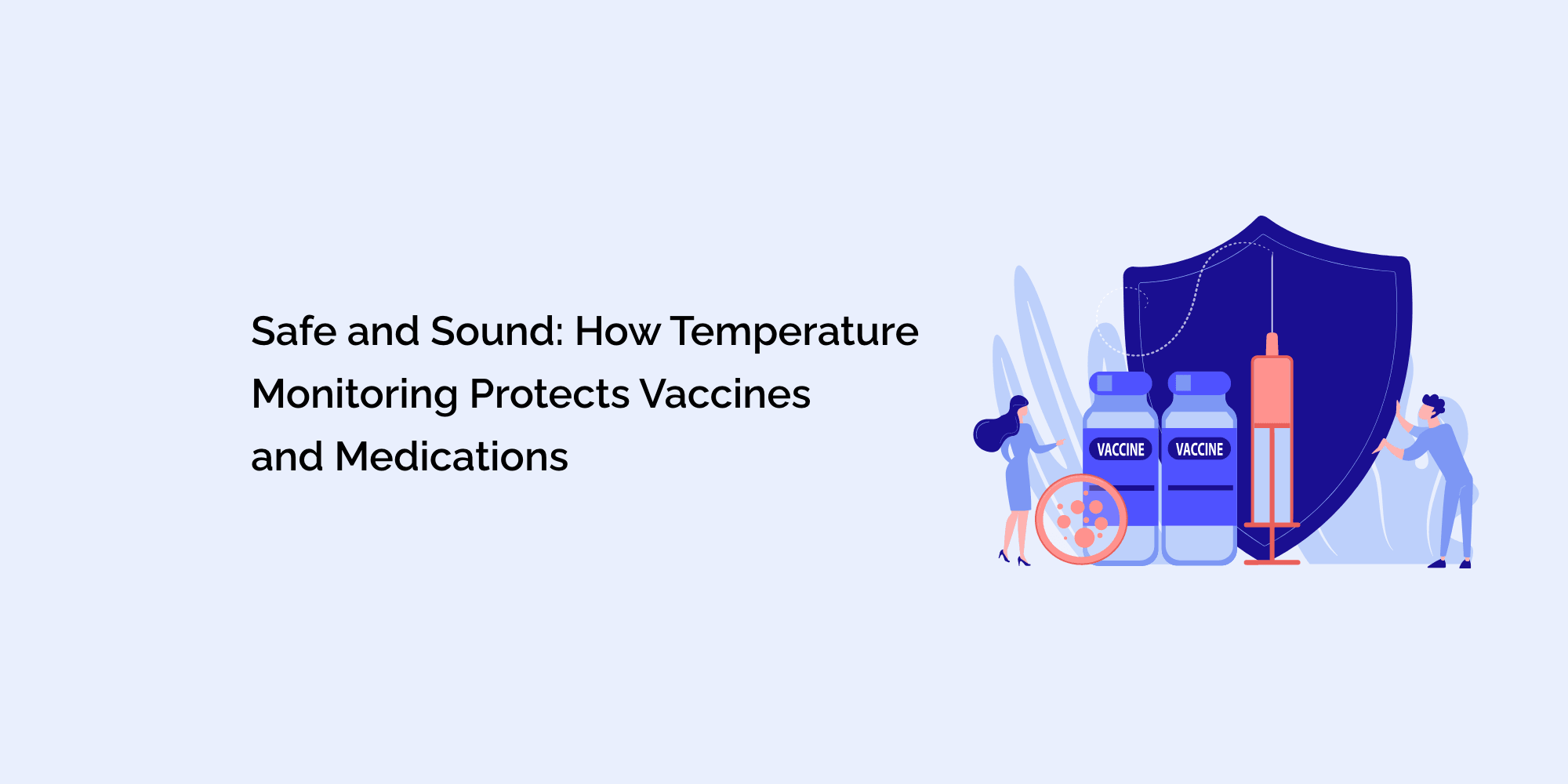In the world of healthcare, the safety and effectiveness of vaccines and medications are of paramount importance. These life-saving products are highly sensitive to temperature variations, and even slight deviations from the recommended storage conditions can compromise their efficacy.
This is where temperature monitoring plays a critical role in ensuring that vaccines and medications remain safe and potent throughout their journey from production to administration.
In this blog, we will explore how temperature monitoring safeguards these essential healthcare products.
The Fragility of Vaccines and Medications
Vaccines and medications are delicate compounds, often composed of biologics or chemical substances that are highly susceptible to temperature changes. The efficacy of these products depends on maintaining specific temperature ranges throughout their lifecycle:
1. Vaccine Integrity: Vaccines are designed to stimulate the immune system and protect against diseases. If vaccines are exposed to temperatures outside their recommended range, their effectiveness can be significantly reduced, rendering them ineffective.
2. Medication Potency: Medications, whether over-the-counter or prescription, rely on precise chemical formulations. Temperature fluctuations can lead to chemical degradation, rendering medications less effective or even harmful.
3. Patient Safety: Ensuring the safety of patients is a top priority in healthcare. Administering compromised vaccines or medications can pose health risks, especially for vulnerable populations.
The Journey of Vaccines and Medications
To appreciate the significance of temperature monitoring, let's follow the journey of vaccines and medications:
1. Production and Distribution
Vaccines and medications are typically manufactured under strict temperature controls. They are then transported from production facilities to distribution centers. During this stage, temperature monitoring ensures that the products remain within the recommended temperature range.
2. Storage
In healthcare facilities, vaccines and medications are stored in specialized refrigerators and freezers that maintain precise temperature ranges. Temperature monitoring systems, such as data loggers or wireless sensors, continuously track storage conditions and send alerts if temperatures deviate.
3. Transportation
When vaccines and medications are transported to healthcare providers, temperature monitoring is crucial. Specialized transport containers and vehicles with temperature control systems are used to prevent temperature fluctuations during transit.
4. Administering
Healthcare professionals rely on the integrity of vaccines and medications when administering them to patients. They trust that the products have been properly stored and maintained at the correct temperature.
The Role of Temperature Monitoring
Temperature monitoring ensures the safety and efficacy of vaccines and medications at every stage of their journey:
1. Early Detection: Monitoring systems provide real-time data and alerts, allowing healthcare providers to detect temperature deviations promptly. This enables them to take corrective action, such as transferring vaccines to backup storage or replacing compromised medications.
2. Data Logging: Temperature monitoring systems often include data logging capabilities, allowing healthcare facilities to maintain detailed records of temperature history. This information is invaluable for quality control, regulatory compliance, and audits.
3. Remote Monitoring: Some advanced systems allow for remote monitoring and alerts via mobile apps or web interfaces, enabling healthcare professionals to keep tabs on storage conditions even when they are off-site.
4. Compliance with Regulations: Healthcare facilities must adhere to strict regulations and guidelines regarding the storage and handling of vaccines and medications. Temperature monitoring is essential for compliance and demonstrating due diligence.
Conclusion
Temperature monitoring is the unsung hero of the healthcare industry, ensuring that vaccines and medications remain safe and effective. The next time you receive a vaccine or a prescription medication, remember that a robust temperature monitoring system played a crucial role in safeguarding your health.
It's a testament to the meticulous care taken by healthcare providers to ensure that these life-saving products remain safe and sound throughout their journey from production to your treatment.








